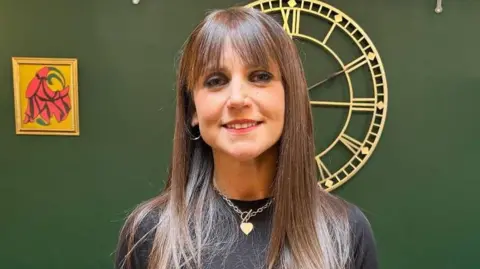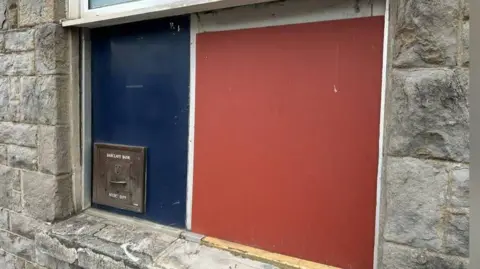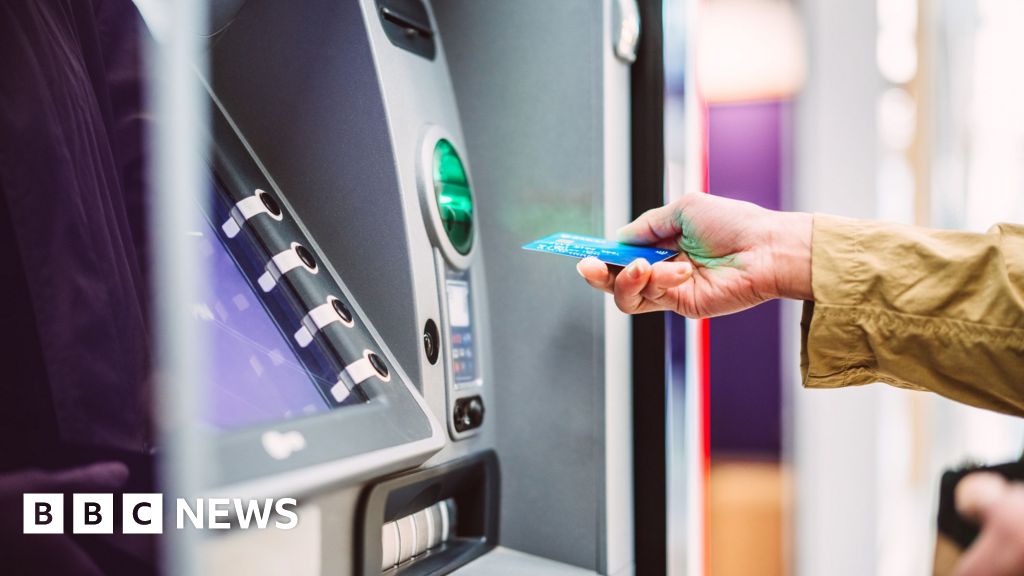By Daniel Heard, BBC News
 Getty Images
Getty ImagesPeople in a south Wales town have said their cash machines are running out of money, leaving them concerned over the future of their high street.
The last bank branch in Treorchy, Rhondda Cynon Taf, closed in April, leaving the remaining cash machines in the town struggling to cope with demand, a resident and business owner said.
It comes as an inquiry by the Welsh Affairs Committee found more than 20 bank branches had closed in Wales so far in 2024.
Research found Wales will have lost two thirds of its bank branches between 2015 and 2025, partly due to online banking.
On Treorchy’s Bute Street, Sara Bailey runs Hot Gossip coffee shop, and said her business and others had suffered since Barclays closed its doors.
“When Barclays went, it took the cashpoint it had with it,” she said, adding bank staff told her it was “the busiest cash point in south Wales”.
There are two other cash points in the town, she said, but they have struggled to cope with the demand, running out of money “once, even twice a day on some days”.
“We are a cash-only business here, so we have had to turn customers away. A few other businesses here have had to do the same,” she said.
A few doors down from Hot Gossip, Nicola Lund helps her father run Top Cards, a greetings card shop, where the cash machine shortage is also having an impact.
“The Post Office is quite a way in to town as well, so older people have to walk down there to get cash out, and they don’t want to walk back – I don’t blame them,” she said, adding a nearby phone shop said its footfall had decreased since the bank closed.
“I am worried about the future of the business because of this,” she said.
Barclays said in a statement consumer behaviour had changed, with the majority now choosing online banking, which was reflected in the Treorchy branch.
It said it had provided a mobile van two days a week since the branch closed.

Treorchy is not alone in losing its banks in the area.
Half an hour away, Mountain Ash is facing a similar situation.
The town has been without a bank since the last branch, Lloyds, closed in 2017.
A “banking hub” is expected to open in the town next year, which will allow customers of any bank to withdraw and deposit cash, as well as make payments.
The service will join seven others across Wales – two of which are currently open, in Welshpool, Powys, and Prestatyn, Denbighshire.
Further locations are cited for Abergele in Conwy county, Abertillery in Blaenau Gwent, Morriston in Swansea, Porthcawl in Bridgend county and Risca in Caerphilly county.
In Treorchy, a temporary hub has been opened on the site of the former Barclays bank on Bute Street.
Like others in Wales it is run by Cash Access UK – operating Monday to Friday between 09:00 and 17:00 – which said it was looking for a permanent home for the hub.

Research by the consumer organisation Which? suggested by the end of 2025, Wales will have lost two-thirds of the bank branches that were open in 2015, leaving only 188 left in the country.
The Welsh Affairs Committee has launched an inquiry into the issue, finding the number of bank and building society branches in Wales fell from 695 in 2012, to 435 in 2022, and 22 high street bank branch closures had already been announced for 2024.
Adrian Buckle, head of research for the trade association UK Finance, said there had been an increased trend of banks reviewing the costs of operating branches.
“If you go back 15 years, six out of 10 payments that we made were made using cash – but, as of last year, this had fallen to about 14% of payments,” he said.
Mr Buckle said although he does not expect bank branches to become a thing of the past, the way banks operated on the high street may change, including the likely prevalence of banking hubs.
“It’s no longer financially viable to have five or six separate banks that have their own branches. But they can now share a branch, and provide that face-to-face banking service to customers in the area who want to bank that way.
“I do think it’s something that we’ll see the entire industry taking more advantage of, and that will be something that will be good for consumers,” he said.


